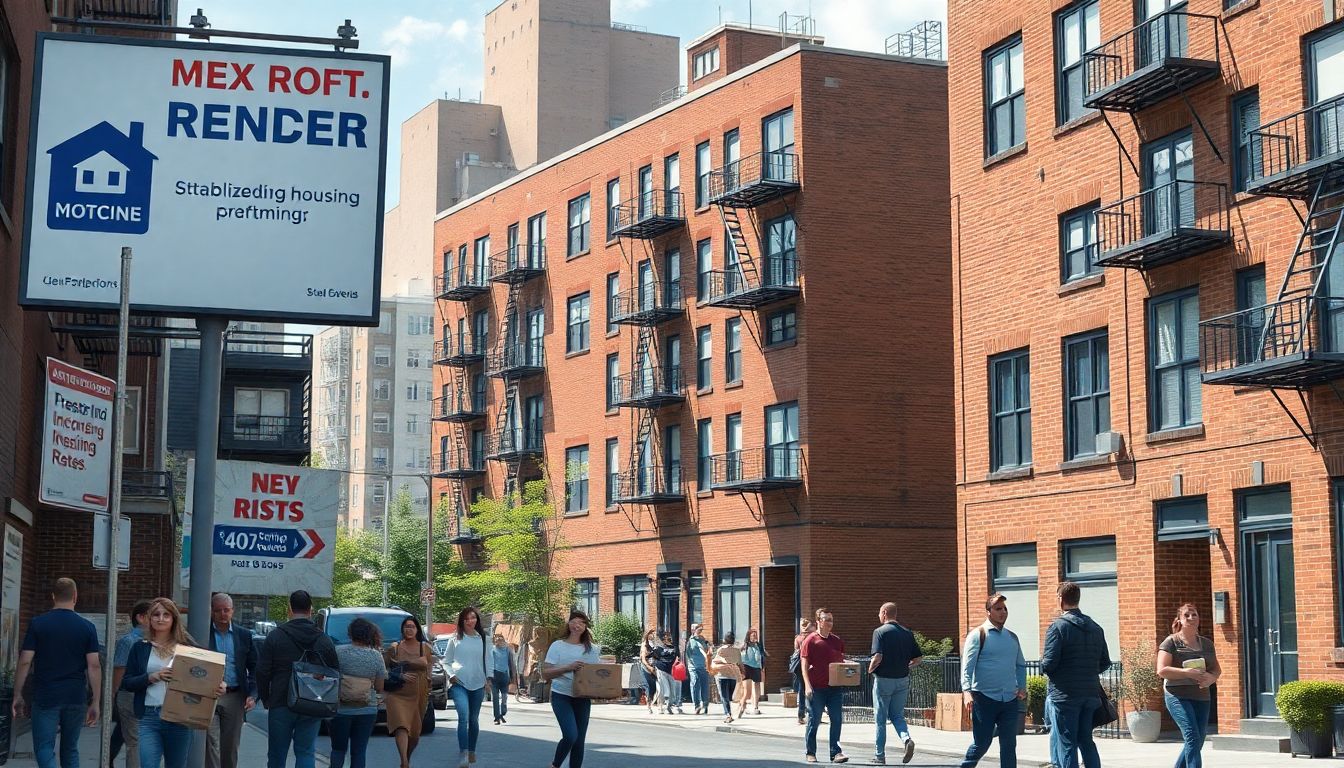Rent rates continue to increase in most cities. Now, even renters in rent-stabilized buildings have another increase to worry about. It concerns many who are dependent on affordable housing. As costs rise, renters question how they will be able to afford it. Knowing about rent laws, tenant protections, and taking preventive measures is more crucial than ever. Being aware can assist in preserving your housing and your money in trying times.
The Current State of Rent Stabilization and Rising Rents
Overview of Rent Stabilization Laws
Rent stabilization is one way of keeping rent increases in check. It sets limits on the amount by which rent can be raised per year. These types of laws help to make housing affordable and prevent drastic, enormous rent hikes. New York and San Francisco have tough laws. These laws also establish some protections for tenants from eviction and huge rent hikes.
Recent Trends in Rent Hikes
Over the last few months, rent has gone up sharply once again. Figures show landlords are asking for larger rises, nearly up to the legal mark. In New York City, for example, average rises in rent recently hit 4-5% annually. Other renters get notices of increases close to the legal mark. This is a continuing trend despite financial troubles.
Impact on Tenants
Repeated or frequent hikes render it more challenging for tenants to stay in their homes. Most struggle to keep up with climbing rent costs. Some are evicted or forced to leave neighborhoods they love. Figures show increasing rent arrears and eviction of tenants. For some — low-income households in particular — such increases threaten housing insecurity.
Reasons Behind Near-Future Rent Hikes
Shifts in Housing Market Conditions
The housing market is oversupplied. Low supply with high demand causes prices to rise. Inflation also raises the price for landlords, and raising rent is an automatic response. When bringing in new tenants is expensive, landlords will raise rent on existing tenants.
Policy and Regulatory Changes
Currently proposed policy reforms might impact rent stabilization. Some lawmakers view easing rents ceilings on increases or simplifying eviction requirements. Others explore deregulation of designated buildings. These reforms can lead to even greater increases in rent or less protection for tenants.
Landlord Practices and Incentives
Landlords are greedy to maximize profit. In a robust market, they can seek to maximize the returns on rent. Some landlords will attempt to push rent increases to the absolute limit. Others can go for refits or upgrades that will allow them to increase rent. This practice can strain tenants.
Legal and Policy Responses to Rent Increases
Rights and Protections of Tenants
Renters have legal protection against unjustified rent hikes. Notice periods typically obligate landlords to give notice far in advance. Rent increases are typically limited in certain cities to avoid outrageous hikes. Knowledge of your rights can help you stand up to unfair hikes.
Advocacy and Tenant Organizing
A number of tenant organizations participate in the fight against increased rent levels. They work with legislators, protest, and inform residents about their rights. Some areas possess stricter rent laws following recent campaigns. Efficient tenant organizations can be a good advocate for housing stability.
Here are some proposed policy solutions:
Certain municipalities support expanding rent control law. Others suggest rent subsidies or tenant buyouts to keep families in their homes. Municipal governments are seeking how to limit rent increases without regard to the interests of landlords. These reforms could make housing more stable for most tenants.
Effective Strategies for Tenants Facing Rent Increases
Reading Lease Agreements and Notices
Always carefully read notice of rentals. Check if the increase complies with local laws. Be aware of your terms of lease and your landlord’s requirements. Your first step in reaction is knowing what is allowed.
Negotiation with Landlords
Occasionally tenants can negotiate for lowered increases or payment plans. Having a good rapport counts. Explain your situation and ask about potential concessions. Always try it before extreme measures.
Looking into Legal Aid and Resources
Much assistance is free. They can examine your rent notice or challenge unlawful increases. If necessary, reach out to neighborhood tenant rights organizations or legal aid agencies. They can navigate arguments and safeguard your rights.
Thinking About Long-term Housing Possibilities
If rents rise to the point of making residence unaffordable, explore alternatives such as relocating to a different stabilized apartment. Relocation will sting but could be the more prudent choice in the long run. Having a contingency plan minimizes stress over rising costs.
Case Studies and Real-World Examples
In New York, tenants have resisted increases near the legal maximum. Others have managed to get decreases or deferments through lawsuits. For instance, tenant groups effectively defeated a 5% raise in Brooklyn. These victories illustrate the power of organized action and legal contest.
In one case, low-income families were pushed out after rent hikes pushed them out of their affordable neighborhoods. Such cases highlight how policy and high rent hikes affect specific communities deeply. Acting now can prevent such outcomes elsewhere.
Conclusion
When rent is increasing toward contemporary legal limits, it pays to know your rights. Standing up for your home is a matter of knowing and doing. Engage with tenant groups, read notices carefully, and don’t be pushed around in negotiations. There remains a fight to be fought for affordable, safe housing and your voice matters. Keep struggling for fair rent legislation and cleaner neighborhoods. Your home is worth it.
Be vigilant, stay informed about your rights, and join others to ensure that housing remains available to everyone.
